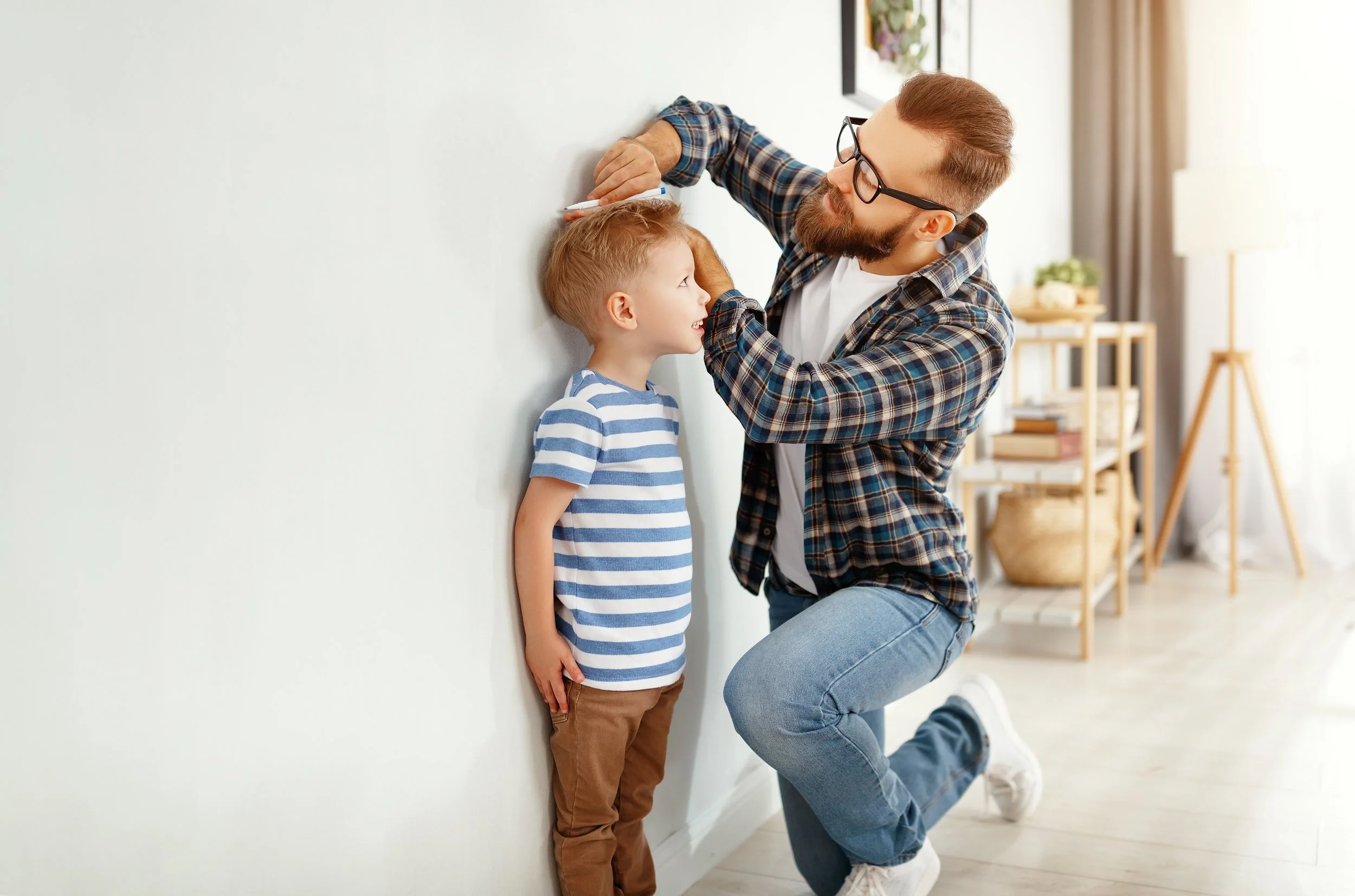3 Year Old Milestones: Speech & Language
Learn the Speech and Language Milestones Kids Usually Hit By 36 Months
How many words should 3 year olds say?
What 3 year olds understand?
And discover some 3 year old activities for speech and language that you can do at home?
How many words should a 3 year old say?
By the time children are 3 years old (36 months), they will have far more words than anyone could count. Tracking vocabulary is a great way to measure growth for children who say less than a few hundred words.
But 3 year olds can say more than 500 words, and you’ll probably find it easier to listen for changes in their grammar to realize their growth in language expression.
Perhaps the most noticeable change is that 3 year olds start to speak in longer and longer sentences. Listen to the sentences your 3 year old is saying and write down some of the longest sentences they say. You can do this again in a few weeks to a month and notice that their sentences are getting longer and longer!
Talking in longer sentences allows 3 year olds to begin telling stories about things that happened. It is always exciting to hear about your little one’s day!
3 year olds also begin to use endings on verbs, like walked and walking to talk about things that happened in the past versus things that are happening right now.
If you are interested in working on some of these specific grammatical skills with your child, you can find lessons and specific activity guides for 2 and 3 year old children in our Toddler Talk Program which offers a free toddler assessment and customized lesson plans.
Do I need to be worried if my 3 year old is “stuttering”?
The short answer is, “Probably not.” But it’s definitely worth investigating further as there are different types of stuttering. You can read more about stuttering in young children here to learn about the differences between developmental stuttering and stuttering treated by speech therapists.
How many words does a 3 year old understand?
By the time toddlers turn 3 years old (36 months), they have learned the meaning of over 3,000 words!
This means that 3 year olds will be able to understand many things. They have learned routines and can anticipate what might happen based on circumstances. They understand the words for the things they see everyday and some words for things they have seen only a few times. 3 year olds can answer questions and follow directions most of the time.
Now that children can understand the words for things around them, it is a good time to begin to introduce academic concepts.
Because they have the vocabulary they need to function without frustration, we can begin to add on extra.
After 3 years old when children can say about 500 words and understand more than 3,000 you can begin to teach concepts like early phonics, colors, and counting.
I’m concerned my 3 year old might be delayed? Do they need speech therapy?
Once children are 3 years old (in the United States), they will be able to qualify through speech therapy through the school district. They do not have to be in preschool in order to access school-based speech therapy.
If you have public insurance, you might be eligible for speech therapy at a local speech therapy office until your child gets into school based speech therapy.
If you have private insurance, call the number on the back of your insurance card or visit your insurers website to learn more about what coverage your child is eligible for. Insurance plans vary greatly, so I find it’s best to ask the experts (even if it means being on hold!).
3 Year Old “Speech” Checklist
The communication milestones to look out for by 36 months.
Expression Skills
How does your toddler "tell" you things?
▢ Says more words than you can count; Seems to have a word for just about everything
▢ Has little conversations with you and their friends
▢ Puts endings on verbs to talk about the past - walked and watched
▢ Talks in sentences
▢ Asks questions and tells you what they want, need, think, and feel
▢ My child has started to tell stories about things that happened to them
Understanding Skills
What words does your toddler know?
▢ Answers many different “wh” questions: who, what, where, what's happening
▢ Answers many different yes or no questions
▢ Follows directions without your help most of the time (you may have to help if they don’t want to do it, but they understand what you asked)
▢ Listens and responds to what other kids are saying
▢ Continues to learn the meaning of new words when introduced to new things
Speech Skills
Which sounds should you be listening for?
▢ Pronounces most Consonant Sounds: P, B, T, D, K, G, M, N, H, W, F, V, S, Z, Ch, J
▢ Vowel Sounds: Is able to pronounce all the vowel sounds
▢ You can understand almost everything they say, and other people can understand them most of the time as well
▢ Notices when other people don't understand what they've said
Social Communication Skills
How does your little one play and interact with others?
▢ My child enjoys having conversations with familiar children and adults
▢ Stays on topic in conversation often
▢ Has fun playing with other children with adult support for sharing toys
▢ Understands other people's tone of voice
▢ Makes jokes and thinks other people's age appropriate jokes are funny
Download a free PDF version of the 3 year old speech checklist to keep track at home↓
Get Started With a 3 Year Old Speech Activity
Grow Your Child’s Language Waiting in Line
Waiting is admittedly one of my least favorite things to do. But as you are waiting in line at the grocery store or in the carpool line at school with your toddler, you can use this otherwise wasted time to practice speech and language skills.
Now that your child is 3, we expect them to be entertained by conversation with you and their friends. So as long as they are in a good mood and you are talking about something they like and know about, they will have fun talking with you for at least a few minutes.
Ask your toddler questions about what they would like to do in the future or about things that happened in the past. It’s a good idea to ask questions with answers you already know, so you can help them as they are learning.
You can also talk about the things that you see as you are waiting. Commenting on what other people are doing, and what things you see, hear, and smell.
When waiting with your toddler, look for them to:
▢ Ask and answer questions
▢ Talk in sentences about what they are seeing while on your walk
▢ Have fun (at least for a few minutes) just having a conversation with you (as long as their in a good mood)
▢ Tell simple stories about things that happened
For more at home speech activities, take our 10 minute assessment and get a customized at home lesson plan - completely free because we believe that’s how it should be!
Here are some other common parent questions about 36 month milestones:
-
By 36 months it’s expected that:
children are saying far more words than you are able to count
you can understand what a child is saying almost always
children are able to tell you a simple story about what happened to them
children understand new words easily and they are able to answer many questions
-
A speech and language evaluation, either through the public school system or a speech therapy clinic, is conducted to see if your child has a “speech problem” and would be a good candidate for speech therapy.
-
By 3 years old, it’s expected that children’s speech is clear to their parents about 75-100% of the time. In speech therapy we refer to how “clear” a child’s speech is as speech intelligibility.
Written By: Stephanie Keffer, MS CCC-SLP
© 2020-2025. Stephanie Keffer Hatleli, MS CCC-SLP. All Rights Reserved. The content offered on ToddlerTalk.com is for informational purposes only. Toddler Talk is not engaged in rendering professional advice, whether medical or otherwise, to individual users or their children or families. No content on this site, regardless of date, should ever be used as a substitute for direct medical advice from your doctor, speech language pathologist, or other health professional. By accessing the content on ToddlerTalk.com, you acknowledge and agree that you are accepting the responsibility for your child’s health and well-being. In return for providing you with information related to home speech and language practice, you waive any claims that you or your child may have as a result of utilizing the content on ToddlerTalk.com.





